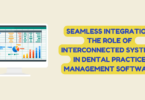
Cyber Security
Healthcare organizations face a growing risk of online attacks, which can disrupt day-to-day operations and lead to the compromise of sensitive patient data. With the demands of a busy work schedule, healthcare staff often lack the time and resources to stay informed about online threats. The prospect of a complete overhaul in online security can be daunting, and many organizations hesitate to take action. However, failing to address this issue can have serious consequences, and healthcare organizations must prioritize online security measures to protect their patients and operations. Engage with Managed IT Services Charlotte professionals to protect your healthcare industry from vulnerable cyber threats.
Healthcare organizations recognize the importance of investing in cybersecurity to protect patient information. However, determining where to allocate resources can be daunting with constantly evolving threats. Outdated systems and high demand for patient data are among the nine reasons healthcare has become the primary target for online attacks. As a result, healthcare leaders seek guidance on effectively prioritizing their spending to safeguard against cyber threats.
6 Reasons Healthcare is the Prime Target of Cyber Attacks
Valuable Data and Information
Healthcare organizations hold highly sensitive and valuable data, including personal health information, financial data, and other confidential information. This makes them an attractive target for cybercriminals who seek to exploit this data for financial gain or other nefarious purposes.
Due to the sensitive nature of this information, healthcare organizations must take steps to protect it from cybersecurity threats. This includes implementing robust security protocols, educating employees on proper security practices, and monitoring systems for potential breaches regularly. By taking these measures, healthcare organizations can help ensure their valuable data remains secure and protected from cyber threats.
Use of More IoT devices
The healthcare industry has become a prime target for cyberattacks in recent years, and one primary reason for this is the increased use of Internet of Things (IoT) devices. These devices, such as medical equipment and wearable health monitors, are often connected to a network without proper security measures. This makes them vulnerable to cyberattacks that can compromise patient data, disrupt critical operations, and even put patients’ lives at risk.
Additionally, the sensitive nature of healthcare data makes it a valuable commodity on the black market. Personal health information can be used for identity theft or sold to third parties for marketing. Healthcare organizations must secure their networks and protect patient data from cyber threats. This includes implementing strong passwords, encryption and regularly updating software and security protocols.
Evolving Ransomware
Cyberattacks have become a major concern for the healthcare industry due to the evolution of ransomware. Ransomware attacks have become increasingly sophisticated, allowing cybercriminals to infiltrate healthcare systems and demand payment in exchange for releasing sensitive patient data. The healthcare industry is particularly vulnerable to these attacks due to the high value of patient data, which can be sold on the black market for a significant profit.
Additionally, healthcare organizations often lack the resources and expertise to protect themselves against cyber threats adequately. As a result, healthcare providers must invest in robust cybersecurity measures and regularly update their defenses to prevent cyberattacks from compromising patient data and disrupting critical healthcare services.
Inadequate Cybersecurity Measures
Cybersecurity readiness is a critical concern for organizations across all industries. However, healthcare organizations have traditionally lagged behind others regarding their preparedness for cyber threats. This can be attributed to many factors, including limited budgets, complex and diverse systems, and the prioritization of patient care over cybersecurity measures. Unfortunately, this lack of preparedness can put sensitive patient data at risk and leave healthcare organizations vulnerable to cyber attacks.
To address this issue, healthcare organizations must prioritize cybersecurity measures and invest the necessary resources to protect against cyber threats. This may involve firewalls, encryption tools, and other security protocols to safeguard their systems and data. Additionally, regular employee training and education can help raise awareness about cybersecurity risks and promote best practices for preventing cyber attacks. Also, IT Support Chesapeake specialists will help your business to adopt strong security measures.
Inaccessible Healthcare Data
In the healthcare industry, confidentiality and accessibility of patient data are both critical factors. When highly confidential patient data needs to be accessed remotely and on-site from multiple devices at any given time, healthcare staff require a reliable and efficient system to access critical data quickly.
One solution is implementing a secure cloud-based platform allowing authorized personnel to access patient information anytime and anywhere. This platform should have robust security measures in place to ensure the protection of sensitive data while still allowing for quick and easy access. Additionally, staff training on proper security protocols is essential to prevent unauthorized access or breaches of sensitive information.
Outdated Technology
Despite the many advances in medical technology, not all healthcare organizations can keep pace with the latest developments. This can be especially problematic when it comes to outdated technology within hospital systems. To provide the best possible care for patients, hospitals must release regular system updates to ensure that all software and equipment are equipped with the most recent technology.
Failing to do so can result in low efficiency, increased costs, and compromised patient care. As such, healthcare organizations need to prioritize investing in up-to-date technology and ensuring that their systems are regularly updated to meet the needs of their patients and staff.
Conclusion
The increasing prevalence of cyberattacks targeting the healthcare industry highlights its critical vulnerability in the digital age. The unique combination of sensitive patient data, interconnected systems, and limited cybersecurity resources make healthcare an attractive and lucrative target for malicious cyber attackers. The consequences of successful cyberattacks in the healthcare sector can be devastating, compromising patient privacy, disrupting critical healthcare services, and even putting lives at risk. So, healthcare organizations must prioritize robust cybersecurity measures and invest in advanced technologies to combat this escalating threat.






